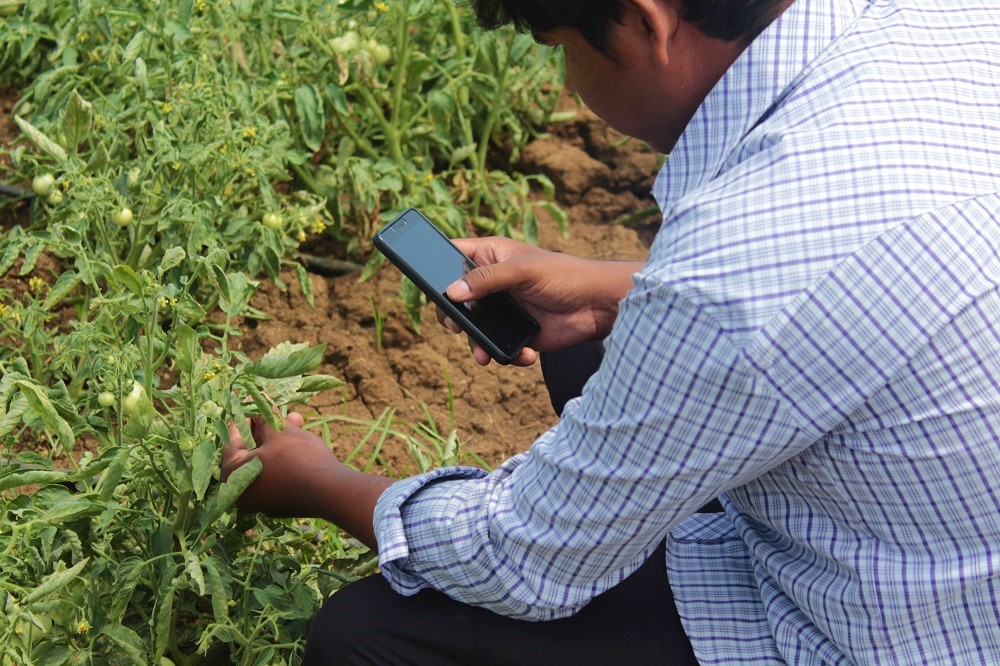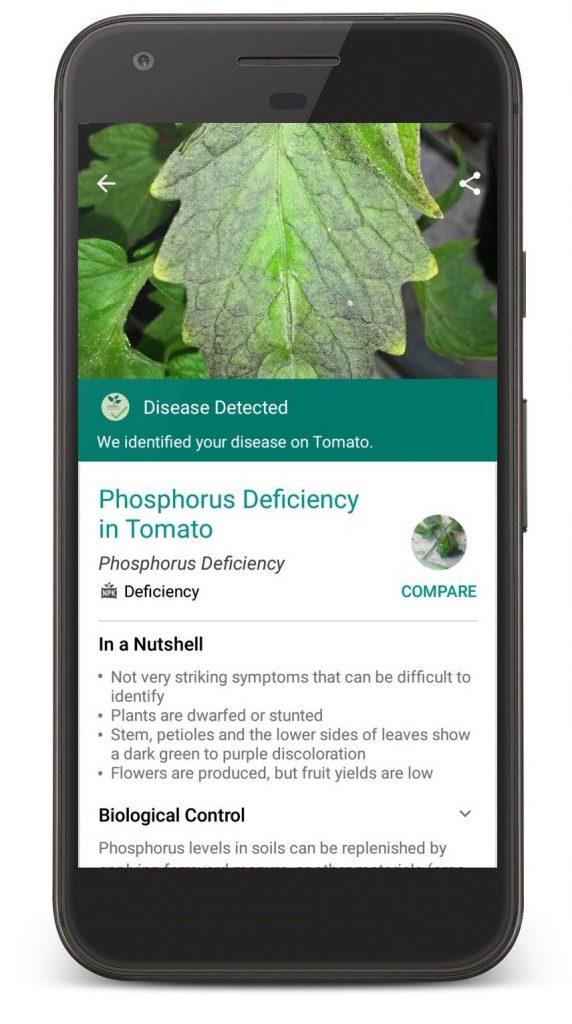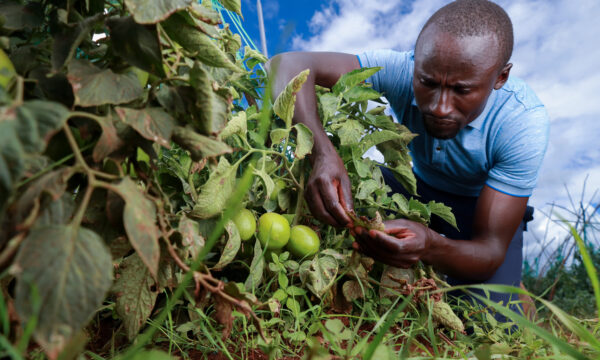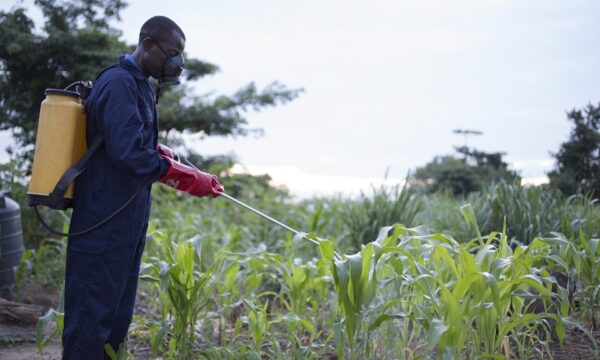
Plantwise and the German-based company PEAT (Progressive Environmental & Agricultural Technologies) are about to conduct an 18-month pilot study to assess the benefits of PEAT’s smartphone app Plantix, which can help to diagnose plant pests, diseases and nutrient deficiencies in the field.
The app further offers advice on remedies ranging from conventional control, preventive measures and biocontrol. This includes a community feature where agricultural stakeholders can exchange their knowledge. The goal of the common project is to evaluate and further improve Plantix’ detection rate and put a stronger emphasis on control measures that are less harmful but effective and Integrated Pest Management (IPM).
Scientists will be using Plantwise plant clinics run by MS Swaminathan Research Foundation (MSSRF) in Tamil Nadu, India and their network of plant doctors to evaluate and improve the Plantix app, developed by PEAT. The app utilises the smartphone’s camera to deliver automatic image recognition-based diagnosis of pests, diseases and nutrient deficiencies affecting rice, groundnut, brinjal, chillies and banana in Tamil Nadu.
Plantix has been developed to give plant doctors as well as extension workers and farmers an improved ability to diagnose economically-important insect pests, diseases and nutrient deficiencies and manage them in order to safeguard crops and livelihoods. Mike Reeve, Innovations Manager at CABI, said: “With suitable training, the Plantix app is able to provide a rapid diagnosis of plant pests and diseases and, through its built-in community platform, can then offer treatment advice. Automated analysis of smartphone images has enormous potential, especially where there is lack of expert human diagnosis in the field, and we are delighted to be collaborating with PEAT to evaluate and further develop this technology in Tamil Nadu.”

The app works by employing Big Data, Artificial Intelligence (AI) and Deep Neural Networks, or DNNs. The software also has the ability to be multi-lingual and is currently available in Hindi, Telugu and English in India as well as five other languages for use in other countries. During this year, six other local Indian languages will also be launched.
Malvika Chaudhary, Asia Regional Coordinator, Plantwise, said, “Crop losses are mainly caused by pests (weeds, insects, plant pathogens) and soil-nutrient deficiencies. It is important that we use technologies such as Plantix to diagnose problems quickly so that remedies can be applied to prevent further losses.
Working as part of the wider Plantwise plant clinic network, and using data gained from the Plantwise Knowledge Bank, Plantix can be a valuable tool in offering effective pest management advice which may include bio-pesticides that are alternatives to the quite toxic, synthetic, pesticides currently in use.”
Looking forward, Plantix can also serve as a citizen-science tool, where extension workers, plant doctors and farmers upload information about insect pests and diseases so that their distribution can be mapped and knowledge of their management improved.
“With the right expertise from CABI and PEAT, we can therefore improve the knowledge and control of diseases and pests in space and time,” says Korbinian Hartberger, Country Manager at PEAT. He sees the potential of the collaboration of PEAT and CABI in Tamil Nadu as very beneficial on various additional levels. “The most important benefit, however, will be for the farmers, that will gain access to a sound decision support tool that helps them produce more in a more sustainable manner.”
For more on Plantix go to www.plantix.net
1 Comment
Leave a Reply
Related News & Blogs
Agricultural digitalization: Opportunities and challenges discussed at workshop in India
Authors: Dr R. Rajkumar, Principal scientist, (MSSRF) and Akanksha Nagpal, Manju Thakur (CABI) Digital tools have the potential to improve agricultural productivity, sustainability, and adaptability. Alongside longtime partners, M S Swaminathan Researc…
5 April 2024





[…] 3. Plantwise trials image recognition app Plantix in India (March) […]